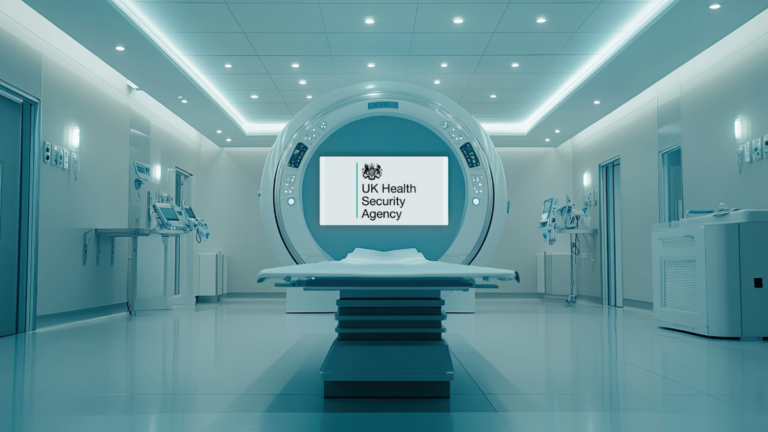The application of Artificial Intelligence (AI) in healthcare is revolutionising multiple aspects of medical care, from diagnostic tools to patient monitoring. Recent efforts have seen AI being incorporated into environmental health monitoring, an area particularly relevant for individuals suffering from allergies and respiratory conditions.
The UK Health Security Agency (UKHSA) is one of the key institutions spearheading this technological integration, using AI to monitor air quality and provide real-time data on pollen and fungal spore levels. Similar to NHS initiatives that have harnessed AI to detect early signs of diabetic retinopathy or assist in patient triage through predictive analytics, the UKHSA’s project marks another step toward a future where AI plays a crucial role in public health.
One of the most innovative applications of AI in this field is the real-time detection and classification of airborne particles that can trigger allergic reactions or respiratory issues. Pollen and fungal spores are among the most common environmental triggers for conditions such as hay fever and asthma. The UKHSA’s initiative, which employs AI and machine learning, aims to address these issues by providing real-time air quality data. By placing sensors on the roofs of their facilities, the UKHSA has developed systems capable of continuously monitoring pollen and spore levels in the air, offering valuable insights into the types and quantities of bioaerosols present.
This AI-driven approach is significantly more advanced than traditional methods of pollen and spore monitoring, which rely on manual collection and analysis of samples, often resulting in delayed data. The UKHSA’s system, by contrast, provides live updates and forecasts, empowering individuals to take preventive measures in real time. For example, on days with high pollen or spore counts, those who suffer from allergies or respiratory issues can be alerted to take their medication earlier or avoid outdoor activities altogether.
Machine learning algorithms play a critical role in this system. By analysing the size, shape, and other characteristics of airborne particles, AI can classify various types of pollen and spores with a high degree of accuracy. These classifications allow for more precise forecasting, enabling healthcare providers to better anticipate hay fever seasons or potential asthma triggers. In the long run, the use of AI to predict spikes in pollen or fungal spore levels could lead to fewer hospital admissions related to severe allergic reactions or asthma attacks.
Machine Learning Applications in Healthcare
| Application | Benefits |
|---|---|
| Disease diagnosis | Improved accuracy and speed of diagnosis, especially for complex conditions like cancer. |
| Drug discovery | Accelerated development of new drugs by analyzing vast amounts of molecular data. |
| Personalized medicine | Tailored treatment plans based on individual genetic makeup and medical history. |
| Image analysis | Automated analysis of medical images (X-rays, MRIs, CT scans) for early detection of diseases. |
| Predictive analytics | Predicting the likelihood of disease onset, progression, and response to treatment. |
| Electronic health record (EHR) optimization | Improved data management, clinical decision support, and patient outcomes. |
| Remote patient monitoring | Real-time monitoring of patient health metrics, enabling early intervention and improved care management. |
| Natural language processing (NLP) | Automated analysis of medical records and literature for knowledge extraction and clinical decision support. |
| Wearable devices | Continuous monitoring of vital signs and health metrics for personalized health management. |
| Robot-assisted surgery | Increased precision, reduced surgical time, and improved patient outcomes. |
The implications for public health are far-reaching. With the ability to continuously monitor environmental allergens and respond dynamically to changing air quality conditions, healthcare systems can offer a more personalised approach to managing respiratory health. For instance, tailored advice on when to take antihistamines or use asthma inhalers could be provided directly to patients, reducing the likelihood of severe symptoms or the need for emergency care. Furthermore, this real-time monitoring system could lead to more efficient allocation of healthcare resources, as the demand for emergency interventions may decrease due to better-managed care.
Additionally, this initiative aligns with broader efforts to address the economic impact of respiratory health issues. Hay fever and asthma contribute to a significant number of work absences and hospital visits annually, resulting in considerable costs to both individuals and society. By adopting AI technologies to monitor and predict bioaerosol levels, the healthcare system could potentially reduce these costs through preventive care and more informed public health responses.
However, the success of AI-driven health solutions like this one depends on their widespread adoption and integration into the broader public health infrastructure. In the UK, the NHS has been exploring various AI applications, such as improving diagnostic accuracy, predicting patient outcomes, and optimising resource allocation. The challenge remains ensuring that these technologies are implemented in a way that is both accessible and equitable.
The NHS, while renowned for its commitment to universal healthcare, has been grappling with systemic issues like staffing shortages, long waiting times, and budgetary constraints. These issues have only been exacerbated by the COVID-19 pandemic, and while AI has the potential to alleviate some of these pressures, it is not a panacea.
AI’s role in environmental health monitoring, particularly in the detection of pollen and fungal spores, represents a promising development for individuals with allergies and respiratory conditions. The UKHSA’s initiative, by offering real-time, AI-driven insights, stands to significantly improve patient care, reduce hospital visits, and even ease the economic burden of respiratory illnesses. Nonetheless, as with any technological advancement, its success will ultimately depend on how well it is integrated into the broader healthcare system, including the NHS.
Given the current strains on the NHS, such innovations may offer part of the solution, but substantial investment in both technology and human resources will be needed to ensure AI’s potential is fully realised in the public health sphere. By leveraging new technologies, the future of healthcare could become more predictive, preventive, and personalised.

